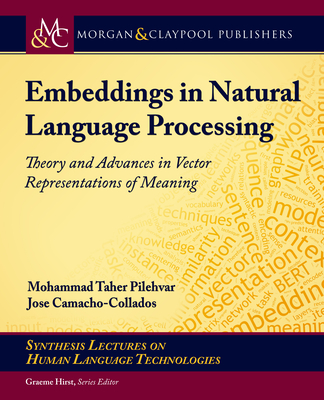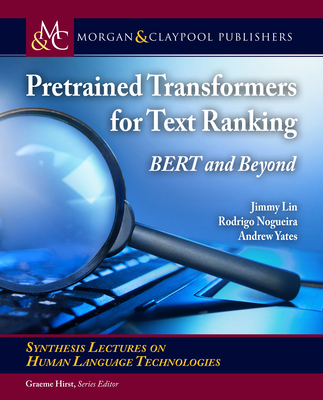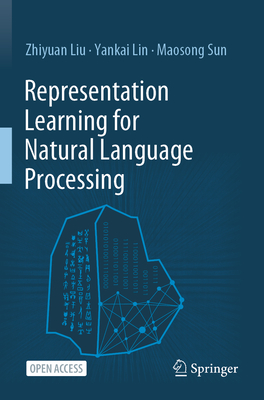Neural Representations of Natural Language (Studies in Computational Intelligence)
暫譯: 自然語言的神經表徵(計算智慧研究)
Lyndon White, Roberto Togneri, Wei Liu, Mohammed Bennamoun
- 出版商: Springer
- 出版日期: 2018-09-18
- 售價: $4,130
- 貴賓價: 9.8 折 $4,047
- 語言: 英文
- 頁數: 122
- 裝訂: Hardcover
- ISBN: 9811300615
- ISBN-13: 9789811300615
-
相關分類:
Natural Language Processing
海外代購書籍(需單獨結帳)
相關主題
商品描述
This book offers an introduction to modern natural language processing using machine learning, focusing on how neural networks create a machine interpretable representation of the meaning of natural language. Language is crucially linked to ideas – as Webster’s 1923 “English Composition and Literature” puts it: “A sentence is a group of words expressing a complete thought”. Thus the representation of sentences and the words that make them up is vital in advancing artificial intelligence and other “smart” systems currently being developed. Providing an overview of the research in the area, from Bengio et al.’s seminal work on a “Neural Probabilistic Language Model” in 2003, to the latest techniques, this book enables readers to gain an understanding of how the techniques are related and what is best for their purposes. As well as a introduction to neural networks in general and recurrent neural networks in particular, this book details the methods used for representing words, senses of words, and larger structures such as sentences or documents. The book highlights practical implementations and discusses many aspects that are often overlooked or misunderstood. The book includes thorough instruction on challenging areas such as hierarchical softmax and negative sampling, to ensure the reader fully and easily understands the details of how the algorithms function. Combining practical aspects with a more traditional review of the literature, it is directly applicable to a broad readership. It is an invaluable introduction for early graduate students working in natural language processing; a trustworthy guide for industry developers wishing to make use of recent innovations; and a sturdy bridge for researchers already familiar with linguistics or machine learning wishing to understand the other.
商品描述(中文翻譯)
這本書提供了現代自然語言處理的入門介紹,使用機器學習,重點在於神經網絡如何創建一種機器可解釋的自然語言意義表示。語言與思想密切相關——正如韋伯斯特在1923年所著的《英語寫作與文學》中所言:“一句話是一組表達完整思想的單詞。”因此,句子及其組成單詞的表示對於推進人工智慧及其他目前正在開發的“智能”系統至關重要。本書概述了該領域的研究,從Bengio等人在2003年發表的“神經概率語言模型”的開創性工作,到最新技術,使讀者能夠理解這些技術之間的關聯以及最適合其目的的技術。除了對神經網絡的一般介紹外,特別是對遞歸神經網絡的介紹,本書詳細說明了用於表示單詞、單詞的意義以及更大結構(如句子或文檔)的方法。本書強調實際應用,並討論許多常被忽視或誤解的方面。本書包括對挑戰性領域(如層次軟最大化和負採樣)的徹底指導,以確保讀者能夠充分且輕鬆地理解算法運作的細節。結合實際方面與更傳統的文獻回顧,本書直接適用於廣泛的讀者群。對於從事自然語言處理的早期研究生來說,這是一本無價的入門書;對於希望利用最新創新技術的行業開發者來說,這是一本值得信賴的指南;對於已熟悉語言學或機器學習的研究人員來說,這是一本堅實的橋樑,幫助他們理解另一個領域。












